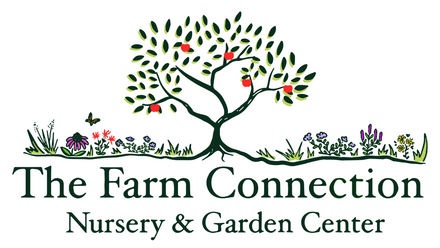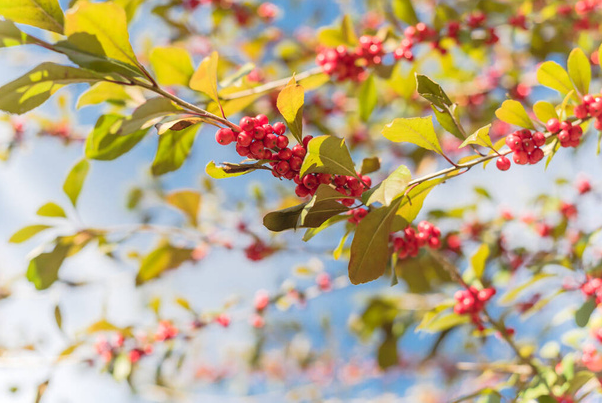Deciduous Holly, Bare Root
Winter Berries for Birds & Wetland Edges
Deciduous Holly, Bare Root - Bare Root / 6-18" Seedling is backordered and will ship as soon as it is back in stock.
Couldn't load pickup availability
Delivery and Shipping
Delivery and Shipping
Make sure to thoroughly review our entire "Shipping, Returns, Refunds, and Our Guarantee" page for all relevant details about ordering from our store.
Making a purchase from our store constitutes an agreement to all the conditions outlined in those policies.
We appreciate your support and look forward to being your favorite plant provider!
Subscribe to our newsletter
Sign up for exclusive offers.
Deciduous Holly (Ilex decidua)
Also known as Possumhaw, Ilex decidua is a resilient, moisture-loving native shrub or small tree prized for its brilliant red berries that persist through winter after the leaves drop. Native to the southeastern and central U.S., Deciduous Holly offers multi-season wildlife value, vibrant winter interest, and excellent performance in rain gardens, streambanks, and woodland edges. Its showy berries feed birds through the leanest months, and its tolerance for wet conditions makes it a top choice for riparian restoration and native hedgerows.
Key Characteristics
-
Essential winter food for birds
The bright red berries are a vital late-winter food source for cedar waxwings, robins, mockingbirds, and other fruit-eating birds. Unlike many fleshy fruits that drop in fall, these persist into late winter when food is scarce. -
Ideal for wetland edges and stormwater plantings
Naturally found along floodplains and low woodlands, Ilex decidua thrives in medium to wet soils and tolerates seasonal inundation. It’s excellent for rain gardens, bioswales, and streambank stabilization where year-round root structure matters. -
Outstanding winter ornamental value
After its glossy green leaves drop in autumn, the bare stems are densely studded with clusters of red berries (on female plants), creating a stunning contrast against snow or dormant landscapes. It adds bold color and structure to winter gardens. -
Supports biodiversity in native plantings
While the berries are not edible for humans, the plant supports a wide range of wildlife including nesting birds, insects, and small mammals. The dense branching also offers protective cover in multi-layered habitat gardens. -
Dioecious: male and female plants needed for fruit
Only female plants produce berries, and a male plant is needed nearby for pollination. One male can pollinate multiple females. Choose planting partners carefully if berry production is desired.
Product Details
- Native range: Southeastern and Central U.S., especially in floodplains and moist woodlands
- Plant life cycle: Deciduous Shrub or Small Tree
- Sun requirements: Full sun to partial shade
- Soil requirements: Medium to wet; tolerates clay, seasonal flooding, and poor drainage
- Mature height: 8–15 feet
- Bloom time: Late spring
- Bloom color: Small white flowers (inconspicuous)
- USDA Hardiness zones: 5–9
Deciduous Holly brings ecological function and seasonal beauty to any native planting. Whether used for winter wildlife food, stormwater control, or visual interest, it’s a reliable and rewarding choice for naturalists and regenerative gardeners alike.
-
Sun RequirementsFull Sun, Part Sun/Shade
-
Soil RequirementsMedium, Medium-Wet
-
Bloom ColorWhite
-
Bloom TimeMay, June
-
USDA Hardiness ZonesZone 3, Zone 4, Zone 5, Zone 6, Zone 7, Zone 8, Zone 9+
-
Native StatesPennsylvania, Ohio, Indiana, Illinois, Michigan, Wisconsin, Missouri, Kentucky, Tennessee, Virginia, North Carolina, South Carolina, Georgia, Alabama
Payment & Security
Payment methods
Your payment information is processed securely. We do not store credit card details nor have access to your credit card information.




